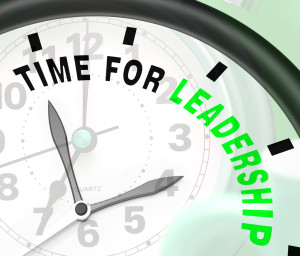There are two parts to your reputation: what you do and what people say about you. If people are consistently saying negative things about your company, it’ll ultimately catch up and stunt your growth. Although there are entire books about reputation and how it relates to key aspects of business and publicity, the truth of the matter is simple: seem to behave well and see your reputation improve. Behave badly, and the results can be catastrophic and long-lasting. Of course, if someone is out to damage you, then that’s another story.
When A Good Reputation Goes Bad
Sometimes the public gets to witness the fall of a giant. This usually happens because of a reputation mishap, where a PR blunder or a failed marketing campaign alienates consumers and turns public sentiment against the giant in question. These events are not always the fault of the company or individual, sometimes they are engineered by third-parties. Let’s take a look at some examples to get a better grasp of what can go wrong and why.
Anthony Weiner’s Private Texts Gone Public
Individuals can be their own worst enemy. The politician, Anthony Weiner, might be remembered best for his sexting scandals and his misuse of Twitter to post questionable images. In 2011 he utterly demolished his own reputation by accidentally posting images of his crotch to Twitter using the D character instead of the “@” symbol which may not have been much better. By doing so he sent what was supposed to be a private message to the entire world. This is a perfect example of how a good reputation can come apart in one second or less.
Before the scandals, he was known as a fiery orator and staunch defender of health care laws. He was even well-respected in congress, serving as an aid to Chuck Schumer through the 90’s and taking a seat as a representative from New York. He won every popular vote by landslides, never below 59 percent, and was obviously well-liked. All it took to unravel his illustrious career was one slip of the finger on his phone.
This example illustrates how a reputation can be sabotaged by one’s own mistakes. Maybe Weiner didn’t know that “sexting” and holding a seat on congress may have been a faux pas, or maybe he didn’t think it would ever get out to the public. Since it did, though, the mistake is clear cut and the damage has been done.
Volkswagen Emissions
Sometimes people in a company contribute to a reputation blunder. In 1963, the United States put forth legislation called the Clean Air Act. The goal was to control air pollution on a national level. For decades, car companies complied with the rules by reducing the emissions of the cars they manufactured. The Environmental Protection Agency (EPA) enforced the rules by testing emissions of cars from the manufacturers. Things seemed great.
In 2015, it was brought to light that Volkswagen, the well-known and adored German auto manufacturer, was cheating emissions testing by the EPA. By way of intentionally programmed diesel engines, emissions reporting was tampered with, fooling the EPA regulators for years. The fallout of the “defeat device” leak has been a greatly damaged reputation and a massive reduction in profits.
The CEO responsible for the company at the time was Martin Winterkorn, who has since resigned. The resignation was forced, as shareholders refused to support him. He was replaced by Matthias Mueller, former CEO at Porsche, who knew he had his work cut out for him in repairing the broken reputation the company now suffered from.
The financial impact was great. For the first time in 15 years, the company reported financial loss. It was no small amount — nearly €2.5 billion. Furthermore, the EPA has said they plan to fine Volkswagen up to $ 37,500 for each vehicle that was tampered with, up to a maximum of $ 18 billion.
This example is one of plain and simple wrongdoing by VW team members that was made public.
Recovering From A Reputation Blunder
After the public has turned on your brand and the fires have reduced your reputation to ashes, coming back can be very difficult. Several companies may come to mind when talking about reputation blunders, but it’s harder to recall a company that has recovered. If done gracefully, the comeback can be subtle.
Let’s look at some companies that are in the midst of a reputation overhaul and others that have recovered completely from a disaster.
Carnival and the Costa Concordia
Search engines can help memory fade as well. Today they’re run in a large part by artificial intelligence. In January 2012, the cruise ship Concordia crashed into a rock formation in the waters of Tuscany. The ship sank, resulting in 36 casualties. The fallout from the event has been massive, and the parent company of the cruise ship, Carnival, is in the trenches trying to rebuild a sunken reputation.
Carnival has stated that is should take them roughly three years to rebuild their reputation after the disaster. Recently it was almost impossible to read any news about Carnival or the Costa brand without coming across a mention of the Concordia shipwreck. But today that news has faded.
“No animal shall kill any other animal without cause.”
We liken this fading of memory to a passage in the book “Animal Farm”. Following executions of some of the animals, the denizens of the farm discover one of their commandments had been changed from “No animal shall kill any other animal” to “No animal shall kill any other animal without cause.” The leaders told the populace there had been no change, that they must have forgotten the last two words because their memories were faulty. Memories seem to fade for talking animals and people as well.
Tesco, the British Supermarket Chain
In 2013, it was uncovered that supermarket chain Tesco was sourcing from meat suppliers that used horse and pig meat instead of beef in food marketed as beef products. In some cases, the entirety of the meat in the products was made up of horse meat.
Technical Director Tim Smith of Tesco made public statements that the supermarket would begin using a “comprehensive system of DNA testing across our meat products” to ensure standards. They also claimed full responsibility, saying, “Ultimately Tesco is responsible for the food we sell, so it is not enough just to stop using the supplier. We want to leave customers in no doubt that we will do whatever it takes to ensure the quality of their food and that the food they buy is exactly what the label says it is.”
Today, it’s safe to say that the company has recovered. While not a complete bounce back, their reputation isn’t marred as terribly from the incident. The widely cited statements by company owners and board members, the visible in-store action, vigorous public outreach, as well as policy changes aimed at betterment and awareness all helped to rebuild Tesco’s reputation.
Understanding Your Reputation
If you’re recovering from a damaged reputation or are curious about your own, there are ways to measure your reputation. Klout is an online platform that awards scores representing influence in social media. A high score is a good indication of a high level of influence and trust. Another simple way to understand how people feel is by checking online reviews left by your consumers, or to track what’s being said about you online with TalkWalker.
Depending on the severity of the issue, it will likely take time, money (Just ask BP who has spent 61 billion on the Deep Water Horizon problem), and effort to recover from a damaged reputation. However, every day that passes is another opportunity for it to worsen – the best course of action is to implement a plan to improve one’s reputation as soon as possible – even before something goes wrong.
Business & Finance Articles on Business 2 Community(69)
Report Post




